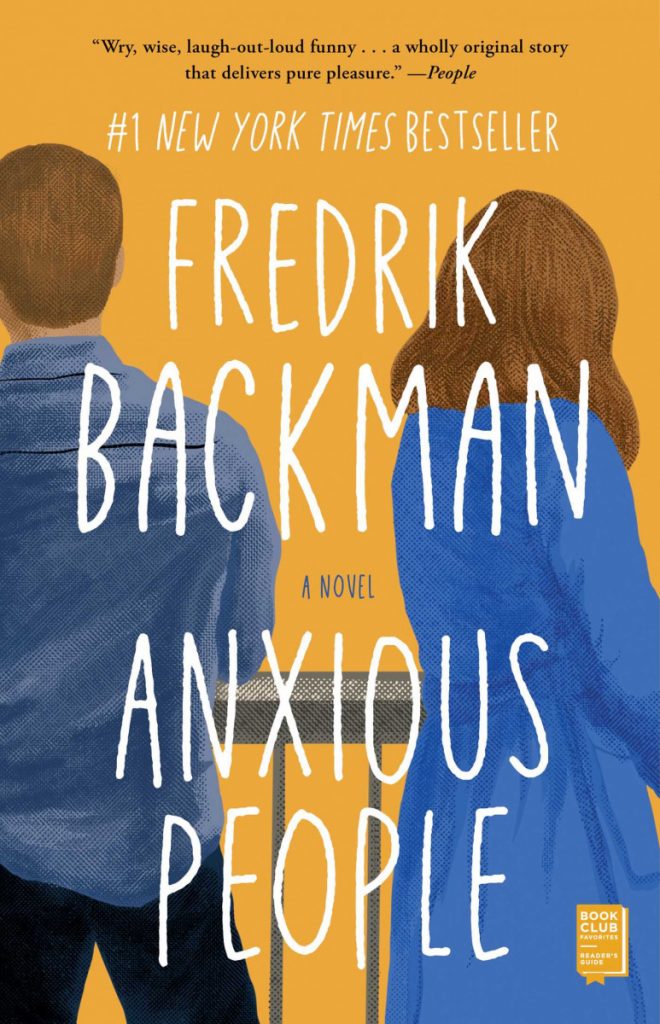SARAH VEST – STAFF WRITER

There are many ways to explore the nature of humanity. Fredrik Backman — Week Five’s Chautauqua Literary and Scientific Circle author — chooses to look at it through the lens of comedy and failed bank robbers in his book Anxious People. Backman will discuss his book at 3:30 p.m. EDT July 29 on the CHQ Assembly Video Platform.
Backman is the No. 1 New York Times bestselling author of A Man Called Ove, My Grandmother Asked Me to Tell You She’s Sorry, Britt-Marie Was Here, Beartown, and Us Against You, and two novellas and one work of nonfiction. His books have been published in more than 40 countries.
Sony Ton-Aime, the Michael I. Rudell Director of Literary Arts, thought that Chautauquans would need a reprieve from all the science-heavy CLSC books that made up most of the line-up for the first four weeks. This need led him to Backman, who has a different way of meeting the theme of “The Authentic Comedic Voice” than most of the other lecturers.
“We wanted to try to balance (the science) with the literary arts and have something — as the theme suggests — that is funny, lighthearted, but also something that we can learn from,” Ton-Aime said.
Backman’s novel tells the story of what happens when a failed bank robber finds himself inadvertently taking a group of strangers — who are all at the same apartment open house — hostage.
Something that struck Ton-Aime about this novel was Backman’s complete trust in the reader and that they will “get it.” This book ties back to the CLSC theme of “The People” because while it has a cast of characters, it is really about humanity — and the readers themselves.
“He fully trusts us,’’ Ton-Aime said. “No way it’s more apparent when, in the middle of the book, one of the characters got angry with another, and in this conversational voice said: ‘How could you stay angry with them after they have learned so much about each other, and they know and they understand each other?’ You have to agree. … It was such an interesting way of reading the book.”
On the first page of Anxious People, Backman’s narrator says, “This story is about a lot of things, but mostly about idiots, so it needs saying from the outset that it’s always very easy to declare that other people are idiots, but only if you forget how idiotically difficult being human is.”
In a set of annotations of the book that he did for Goodreads, Backman calls these lines an “anthem” for the theme of the novel. For him, the lines don’t set the stage in a way that gives away the plot, but they set the emotional tone that gets carried throughout the story.
Backman also wrote that these “anthems also work as reminders” for the direction he wanted to go in. By looking for the tune of the different anthems, he was better able to carry the theme they represented throughout the book.
The idea of the idiocracy of being human came about when Backman was sitting in a parking lot watching a woman with two screaming kids trying to back her car into a tight parking spot. There was a man who got annoyed that she was taking so long to park and was honking his horn. At one point he opened his window and yelled “you idiot” at her, which only appeared to cause more stress.

According to Backman, this was the last straw, and with her kids still fighting in the backseat, the woman stepped out of her car and screamed at the other car: “Stop honking! I’m doing the best I can, you asshole!”
The parking lot fell silent. Backman said he’s sure the woman felt ashamed of her actions but that he was proud of her. He felt that she spoke for everyone, in that we are all just trying to get through the day.
According to Ton-Aime, what he thinks is the most important part of the book would spoil it for those who have not read it. However, he will say that it “changes our assumptions” about being human, and the differences between people.
“At the end you will realize that, ‘I really did think that this person would be this,’ or, ‘This person could not do this thing,’ ” Ton-Aime said. “Then you realize that we’re all human beings, and the things that we are likely to do, everyone is likely to do as well.”




